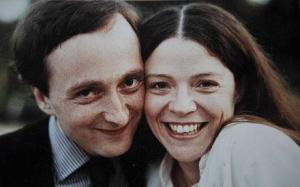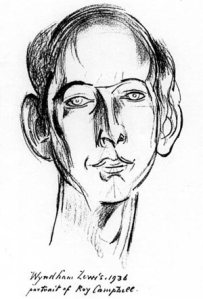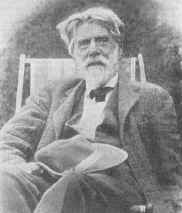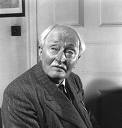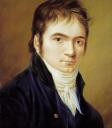As a young man I rejoiced in the poems, which circulated among us, of Christopher Logue. We had his poster poem on our walls; we carried about his ‘Red Bird’ jazz-and-poetry disc (these were both firsts). As a schoolboy, I had invited him to the Royal Grammar School, High Wycombe, but he would not come because we could not pay him. My poet-banker friend Jack Osbourn, who like Logue had read his own poems on 11th June 1965 at the Albert Hall, on the occasion of the International Poetry Incarnation, admired the chutzpah of Logue’s arrogance. My lovely CG went off and slept with him (Logue), as a sort of trophy. I met him once or twice amid the shouting din of Faber’s summer parties in the early 90s, when little in the way of communication was possible. What I did not know was that, amid the gathering success of Logue’s Homeric ‘versions’, Christopher Reid was editing a new Selected Poems of Logue.[1] These I have just now finished.
There are one or two stand-alone poems which I would salvage for my Universal Anthology of Modern Poetry in English:
Later I discovered he had only one eye, and,
needless to say,
posh vets won’t have him in their surgeries.
What’s more, Madame won’t like him.
ּ
But what can you do? — he has moved in
and she hasn’t.[2]
and, after Villon, ‘Caption for a Photograph of Four Organised Criminals’:
Gas, gunshot, Alcatraz, the electric chair —
Only the best machinery could do
Justice to the sensational despair
You legal felt for us illegal few.[3]
And it has been a real pleasure to be reunited with some old friends ─ which I found I knew by heart:
O come all ye faithful
Here is our cause:
All dreams are one dream,
All wars civil wars.
ּ
Lovers have never found
Agony strange;
We who hate change survive
Only through change.
ּ
Those who are sure of love
Do not complain.
For sure of love is sure
Love comes again.[4]
Popular appeal is part of his popular appeal. But the real revelation of this revisiting is of the desolate salt wastes that surround the Cyclades of the Homeric versions. There is really nothing there. In spite of the technical prowess, all is fragmented, miscellaneous. Even some individual successes cannot redeem the impression that this man has nothing of his own to say. The tiger is caged by his own bleak vision. One cannot help but notice that he is no Walcott, Cavafy or Ken Smith:
Ask what song
Mother sang us all to sleep with. Speak again
as Lear spoke and the dead in Homer, called again
beyond the ditch’s lip to be an upright bag of blood.[5]
Many of Logue’s shorter, earlier poems embody a spirit of dissident radicalism eager to be mantled by his readers’ youthful empathy ─ but in favour of what? It is impossible to say. Now in his 80s, Logue seems to have been picked up in the 60s by the tide of hipsterism for which he had been waiting without knowing it. His shining lyrical virtues were suddenly recognised by a large, shaggy audience that asked no questions. For some reason ─ loyalty, perhaps ─ he still wishes to be associated with Alex Trocchi.
Logue seems to be very much more talented ─ in a way Ben Johnson would recognise ─ than similar vernacular poets of our time ─ Cohen, Ginsberg ─ but to have been unable to break out of a confining definition of the lyric poet. There is no doubt that his variations upon Homeric themes excite by their huge vernacular energy:
Flames ate the elms,
Sad-willow, clover, tamarisk and galingale [6] — the lot.
Rushes and the green, green lotus beds crinkled — wet dust,
The eels and the pike began to broil.
Last of all Scamander’s back writhed like a burning poultice,
Then, reared up, into a face on fire:
‘How can I fight you, Cripple? Flames in my throat,
My waters griddled by hot lacquer! Quit — and I’ll quit.[7]
But a comparison with more orthodox ‘translations’ shows how much is left out. Logue really just freewheels, filling in the details in inspired ways, while omitting everything in Homer that might tell us what is going on. He carves the lyric out of the narrative.
Among the non-Homeric shorter poems, through which the hardy reader must navigate knot after irresolvable knot, he several times attempts an explicit narrative ─ ‘The Girls’, ‘Urbanal’ ─ but loses himself in recondite vocabulary,[8] syntactic ingenuities,
Is Thaïs still? Is Nell? And can
Stern Héloïse aurene, [9]
Whose so-by-love-enchanted man
Sooner would risk castration than
Abandon her, be seen?[10]
or:
A curse upon the law. Where did I kiss
My right to cut that scumbag down goodbye?[11]
and just plain obscurity:
This triple step’s best foot still must. Amen.[12]
or:
and then she hears his vicar’s sandal creak
and as she runs towards her friend
and as her friend’s well-bitten fingertips
dandle her frightened scents from bank to peak
triangles blind his lens
and laughter stripes his mind.
And as her friend unties
and as she hops the peak
and as they glide away, away, she stoops.
‘Goodbye to him.’[13]
or:
I talk too much; and when I talk
gesticulate too much; and slender booms
endlessly tending cinderbeds along the city’s cut
affect me deeply.[14]
But modern poetry should be difficult, shouldn’t it?
Nevertheless, an occasional classical neatness springs up, ever fresh, in anapaests and iambs, when you are least expecting it:
And we are on the point of leaving, when,
just for an instant something emerald flares
among the crosslights rising off the sea
and exits through the seamless curvature
of water mixed with sky and quiet stars.[15]
Or:
No clamour of a common weal or woe
summons the lesser clamour of my tongue
to give its resolution clarity.[16]
To an astonishing extent in one so ‘revolutionary,’ many of the poems are literary, in the sense that they arise from starting points in old books. However, no amount of footnoting will render interesting a poem that has already left you cold.
[1] Christopher Logue, Selected Poems, ed. Christopher Reid. London: Faber and Faber, 1996. Page references are to this edition unless otherwise noted.
[2] ‘ Cats are full of death’ p. 51.
[3] p. 53.
[4] ‘O come all ye faithful’, p. 133; a poem worthy of its resonance with Creeley’s ‘Love comes quietly,’ written about the same time.
[5] Ken Smith, closing lines of ‘Departure’s Speech’, final poem of Terra. Newcastle-upon-Tyne: Bloodaxe Books, 1986, p. 89.
[6] A word of Persian origin, meaning sedge.
[7] p. 141; from Book 21 of the Iliad,
[8] See galingale, above; I have also looked up hyoid (a U-shaped bone at the root of the human tongue), mucid (mouldy, musty) and snood (hairnet).
[9] Logue’s own note to this word is: “‘Aurene’ = shining gold; scans as in ‘serene’.“
[10] The awkwardness of this must, albeit reluctantly, reduce one’s enthusiasm for the spanking modern version, ‘Gone Ladies’, p. 81, of Villon’s ‘Where are the snows of yesteryear?’ Ballade.
[11] ‘Urbanal’, p. 131.
[12] ‘The Song of Autobiography,’ p. 9.
[13] ‘The Girls’, p. 120.
[14] ‘Fragment’, p. 89. What is the city’s cut? And how, along it, can booms tend cinderbeds?
[15] This mellifluous passage, in an iambic pentameter measure which has usurped, at the last minute, the steadfast narrative pulse of anapaests, ends (p. 127) the extended but very strange narrative poem, ‘The Girls.’
[16] ‘Fragment’, p. 90, a poem whose unevenness we have already noticed and in which these pentameters, knocked out as meanly as any by Robert Lowell, sit like duck’s eggs in a basket of stones.





